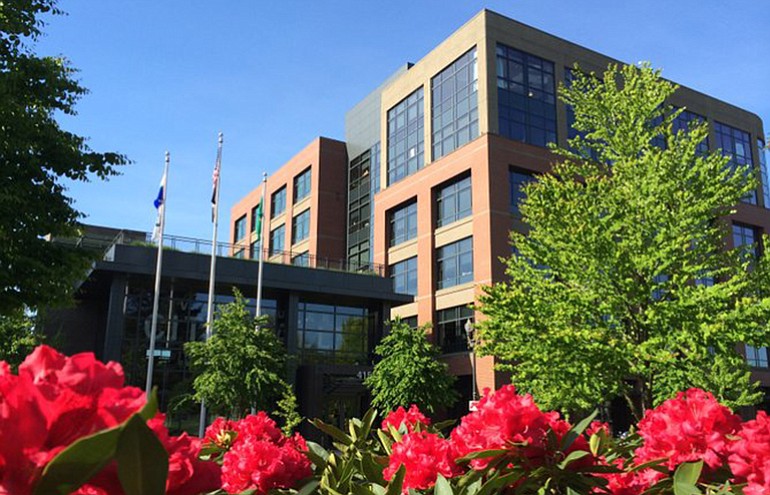The Vancouver City Council voted Monday in favor of property tax levy and utility rate increases.
A 1 percent property tax levy increase passed 6-1, with Mayor Tim Leavitt and Councilors Larry Smith, Jack Burkman, Alishia Topper, Bart Hansen and Anne McEnerny-Ogle in favor and Councilor Bill Turlay the lone dissent. Initiative 747, approved by voters in 2001, limits annual levy increases to 1 percent.
Utility rate increases were passed unanimously.
As an example of what the increases will mean for residents, the owner of a home with an assessed value of $200,000 whose utility bills are average for a family will pay an additional $32.84 next year in city property taxes and utilities.
Nobody testified during the scheduled public hearings at City Hall.
The increases are in line with the council’s pay-as-you-go policy — under which revenues, not debt, are used to replace aging infrastructure — and did not come as a surprise. The city’s 2015-16 operating and capital budget, which was unanimously approved Monday, was prepared under the assumption the council would approve the increases.
Turlay said he voted against the property tax levy increase “as a political statement.”
He said the federal government “wants more tax money” and the state hasn’t been sharing recreational marijuana revenues with cities and has taken some of the city’s liquor tax revenues. Turlay, who believes that carbon dioxide has only a negligible effect on climate change, also said Gov. Jay Inslee wants a carbon tax and low-carbon fuel standards.
“It was an awareness vote that I made,” he told the rest of the council. “I will be supporting the budget.”
The two-year operating and capital budgets total $930.8 million. Highlights include funding to save 30 public safety positions (17 police officers and 13 firefighters) that had been paid for by expiring grants and enough cash reserves to replace two aging west-side fire stations. Public service counters at the Vancouver Police Department’s east precinct, closed in 2010 as part of budget cuts, are scheduled to be staffed next year once the city hires two noncommissioned police service technicians who can take reports from residents.
Leavitt said he and other councilors are appreciative of a period of “relative stability” made possible by past difficult decisions to lay off staff, eliminate programs and reduce services.
City staffing peaked in 2008, with 1,216 full-time employees. In 2016, the city will have a projected 975 full-time employees.
“It’s a fiscally prudent budget,” Leavitt said. “We’re prioritizing according to the demands of our community.”
The proposed increases were reported in June following City Manager Eric Holmes’ first workshop with the city council about setting the framework for the 2015-16 budget.
During that June 16 workshop, Holmes said inflation and population growth have been driving Vancouver’s costs up by about 4 percent a year, outpacing 2.4 percent revenue growth.
Even if the council enacts levy and utility rate increases every year, the city still has a forecasted deficit of $10.2 million by 2020, Holmes said.
The 1 percent levy increase will bring in approximately $433,000.
The owner of a home assessed at $200,000 (assuming the change in home value would be in line with the average) would pay $612.64 in city property taxes in 2015, up from $604.40 this year.
Water and stormwater rates will each increase by 5 percent next year and again in 2016, while sewer rates will increase 2 percent in 2015 and 2016.
The rates will allow the city “to keep pace with increasing operational costs” and “provide funding for the continued implementation of a long-term capital improvement and system reinvestment program without incurring future debt,” Holmes wrote in a report to the council.
Even with the rate increases, monthly utility bills for city residents compare favorably to other jurisdictions in Washington and Oregon.
A typical residential bill in Vancouver will increase $2.05 a month in 2015, to $64.73, and increase by $2.17, to $66.90, in 2016.
Washougal residents have the highest utility rates in Clark County, with an average monthly bill of $97.70.



